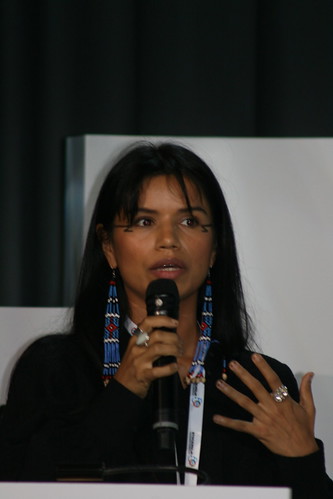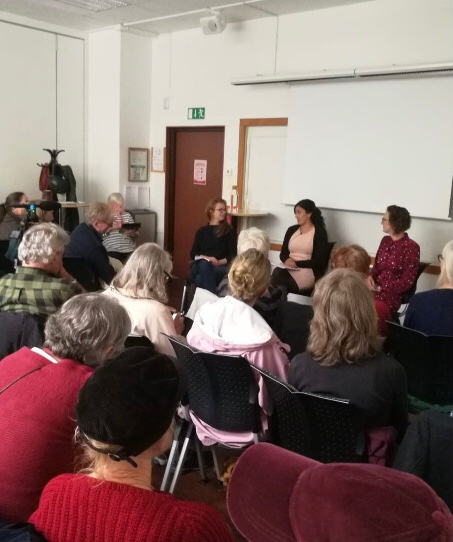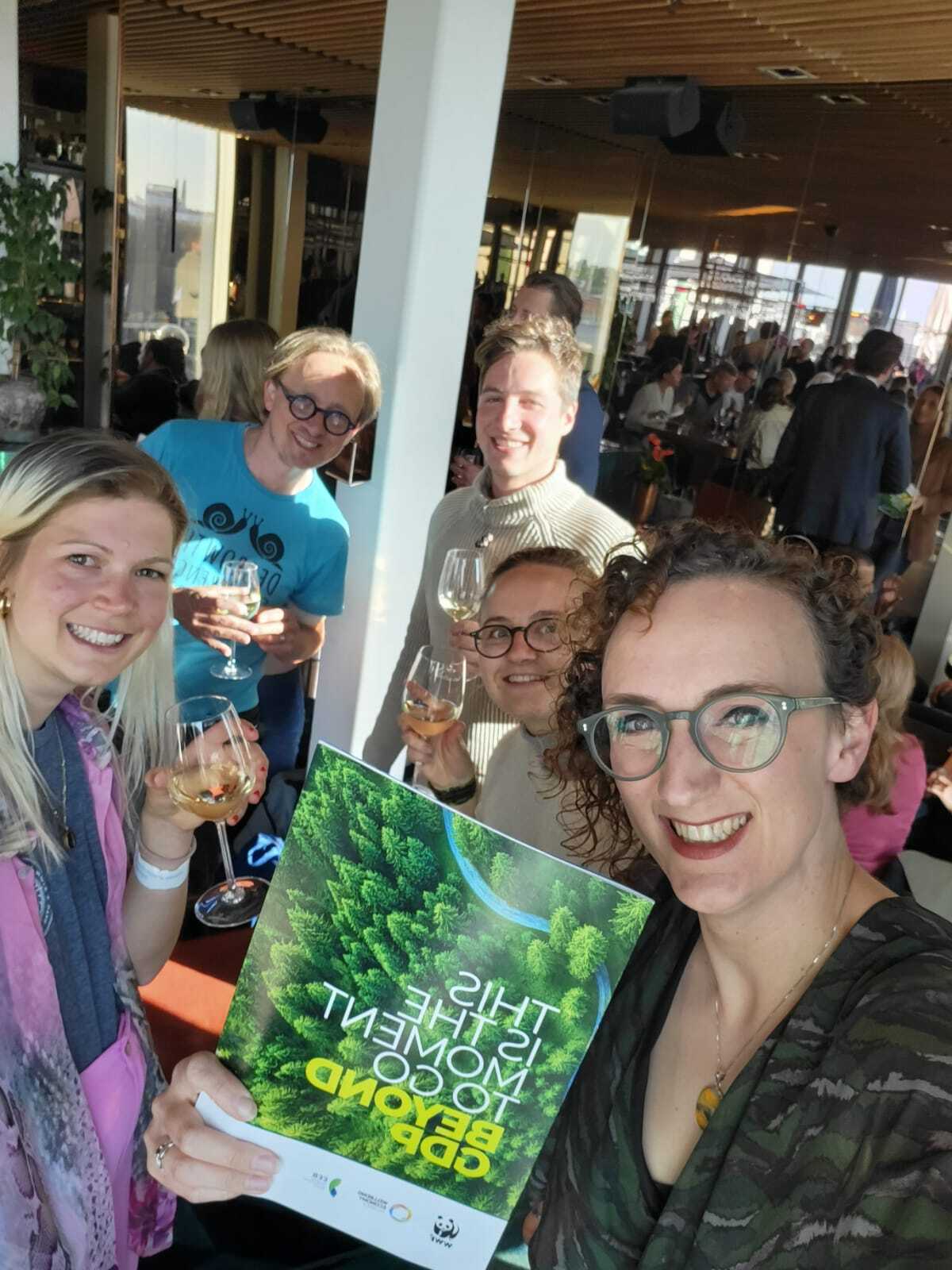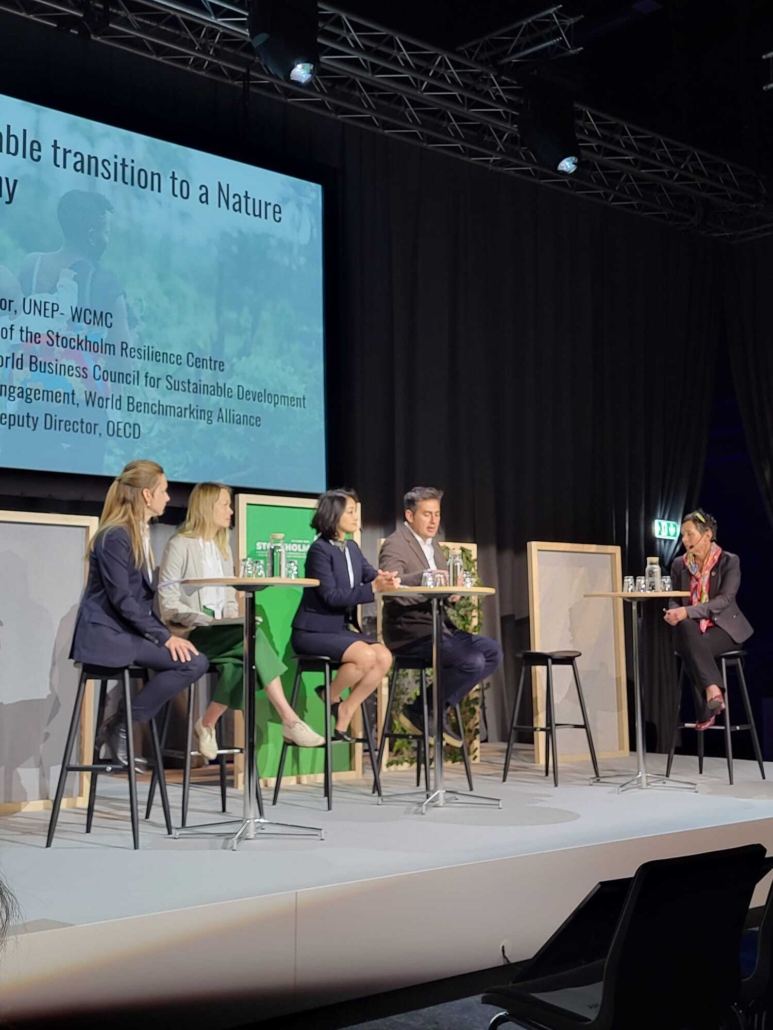This website uses cookies so that we can provide you with the best user experience possible. Cookie information is stored in your browser and performs functions such as recognising you when you return to our website and helping our team to understand which sections of the website you find most interesting and useful.
Written by: Lisa Hough-Stewart and Amanda Janoo
One of the statements below comes from our latest briefing paper “This is the moment to go Beyond GDP”; the other was made during the Stockholm+50 conference last week by UN Secretary General Antonio Guterres:
“We must place true value on the environment and go beyond Gross Domestic Product as a measure of human progress and well-being. Let us not forget that when we destroy a forest, we are creating GDP. GDP is not a way to measure richness in our current situation in the world. We must shift to a circular and regenerative economy.”
“Current policies prioritise economic growth rather than long-term societal and environmental goals: wellbeing, inclusion and sustainability. 50 years after the UN Conference on the Human Environment in Stockholm, the moment has come to finally go beyond GDP.”
The fact that you can hardly tell who said what is cause for hope – a sign that multilateral organisations are finally listening to and taking steps towards a Wellbeing Economy vision. We have much to celebrate coming out of Stockholm, no doubts about that, but we’d also like to bring some reflections on the hard work that still needs to be done to make Wellbeing Economies a reality, and the mindset shifts that we need to address in order to implement truly upstream solutions.
WEAll at Stockholm+50
The WEAll Amp team saw the Stockholm+50 conference as a critical moment for connecting with members and new audiences, and championing Wellbeing Economy ideas in a space where countries and multilateral organisations were shaping plans for tackling environmental crises. Solutions to the environmental challenges we face will be at best temporary band-aids if we do not urgently address the underlying systemic issues with how our economy works today.
The two of us (Lisa and Amanda) spent a whole week in Stockholm, making the most of the opportunity to connect with people, deepen our relationships and participate in key spaces to present a Wellbeing Economy approach to climate change. Here’s what our week looked like:

WELLBEING ECONOMY SIDE EVENT: We promoted an official side event, “Wellbeing Economies: a new economic approach for human and planetary health,” as part of the Stockholm+50 programme, organised by WEAll, WWF, EEB, SSNC and Club of Rome. The side event was at full capacity and the audience was inspired by remarks from Sophie Howe (Welsh Future Generations Commissioner), Virginijus Sinkevičius (European Commissioner), Tshering Gyaltshen Penjor (Kingdom of Bhutan) and Minister Terhi Lehtonen (Finland), as well as civil society leaders. You can watch the recording and see the official outcomes of the side event here.

PEOPLE’S FORUM: We ran a session at the People’s Forum ahead of the conference, collaborating with Scenario 2030, which featured Amanda in conversation with the brilliant Jennifer Hinton – check out her pioneering work on Not-For-Profit economic models here. This event was a chance to connect with activists and changemakers, mostly local to Stockholm, and as a result of our conversations there we’re exploring the potential to establish a WEAll Sweden hub.

WEAll MEET & GREET: We hosted an informal gathering for WEAll members and partners. As ever, it was energising to be together in person, making new connections and deepening existing relationships. We’re so grateful to the 25 or so people who came along and made this evening feel special. We hope you found it as useful and inspiring as we did.

LAUNCH OF NATURE POSITIVE ECONOMY ROADMAP: We attended the launch of WWF and UNEP’s Nature Positive Economy Roadmap, which we’ve been helping to shape as a civil society partner. It’s encouraging to see governments, including Nigeria, Finland, Costa Rica and Spain, engaging with this process and we’re excited to continue supporting its development.
Personal Reflections
Lisa
I’m still buzzing from the great conversations we had in Stockholm – too many to count. We discussed the Wellbeing Economy with government representatives, activists, WEAll members and more. Everywhere, there was excitement and curiosity about the need for economic system transformation. I expected we were going to have to push this agenda into what was essentially a space about the environment, but, instead, it really felt like the Wellbeing Economy agenda was already at the heart of Stockholm+50 and we were a key part of it. The Secretary General’s statement and the official outcomes of the conference are testament to this.
Having spent time with Sophie Howe and her team from the Future Generations Commission, I’m even more convinced that the Welsh Wellbeing of Future Generations Act offers one of the most tangible and compelling routes to transformative change. It was encouraging to see other governments’ and multilateral institutions’ interest in learning from Wales – and I am excited for my home country of Scotland to set up its own Commission soon, which the government has already committed to.
The experience of planning for and participating in Stockholm was one of truly effective collaboration. I’m feeling grateful for the WEAll members and coalition partners that worked with us – galvanising action together around this key moment has made us feel even more like a team. The energy and talent of the people working to build a Wellbeing Economy gives me renewed hope that we’ll get there.
Amanda
There is so much about the Stockholm +50 conference that left me hopeful and convinced of the incredible momentum of the Wellbeing Economy movement. The call for economic systems change could be felt in nearly every discussion and the once fringe idea of moving “beyond GDP” felt nearly mainstream.
All in all, the Stockholm+50 conference was a huge accomplishment for our movement and a testament to incredible work being done all over the world to raise awareness of the need for economic systems change if we are to save our planet and our species.
However, throughout the discussions, I could not help but feel that the economic logic that got us here in the first place is still predominantly guiding our solutions.
The recognition that we must value nature led quickly to the solution of appropriately pricing nature. As most proposals go, in order to recognize that “nature is not free” we must monetize it and find market based solutions to healing, protecting and revitalising our natural world.
This question of how to appropriately “value” nature has been around since the inception of classical economics, with Adam Smith pondering the “water-diamond paradox”. Why is water, the source of all life, worth nothing? When Diamonds, which have little functional value, are worth so much? Questions of “value” are at the heart of economics but have long been lost from the discipline, because to understand “value” we must explore underlying “values” and such ethical discussions are viewed as beyond the remit of our modern pseudo-science.
In a world that is relentlessly exploiting and destroying plants, animals and minerals, I can understand why it feels so urgent to appropriately account for our “externalities”, but I keep coming back to this quote by E.F Schumacher:
“In “the Market’ everything is equated with everything else. To equate things means to give them a price and thus to make them exchangeable. To the extent that economic thinking is based on the market, it takes the sacredness out of life, because there can be nothing sacred in something that has a price”.
Our current economic system is a product of centuries of colonialism that treated people and planet as commodities to be owned, sold and disposed of, and that ignores the things that matter most for our wellbeing–the incredible interplay between humans and nature and the sacred, free ways we produce and provide for one another.
Think about the gift of water or the shade from a tree. The smile from a stranger or the care of a loved one when we are sick. How, and why, would we put a price tag on that which is given freely?
Perhaps, given the urgency of the environmental crises, pricing nature would at least be a step in the right direction. A way to slow down the relentless degradation. But I wonder what logic and values would determine the prices we put on nature’s gifts. Would diamonds continue to be “worth” far more than water in this new logic?
These are some open questions that stuck with me after Stockholm +50, and questions to which I know we can together find answers to. The incredible thing about working for WEAll is that I’m always more likely to find tons of people pondering the same things than not.
While at Stockholm, I happened to eavesdrop on a conversation about a sharing economy campaign that then led to a proposed collaboration to amplify examples, predominantly from the Majority World, of ways in which communities are actively decommodifying aspects of life. I had an opportunity to sit for hours under a bridge with one of our members and discuss the idea of the care economy and what policy mechanisms exist to reverse the market-mechanism that has encroached on so many sacred aspects of life. I was able to challenge my own thinking when speaking with a documentarian who reminded me of Amartya Sen’s insight that markets are like conversations, they are simply mechanisms of exchange and so perhaps it’s not the “market” as much as the profit motive that animates it, encouraging us to always take more than we give.
I know that together, with our powers combined, we can figure this out and co-create new systems of value that ensure we produce and provide for another in a way that supports the wellbeing of all species on this planet.”
the discussion?
Let us know what
you would like
to write about!

